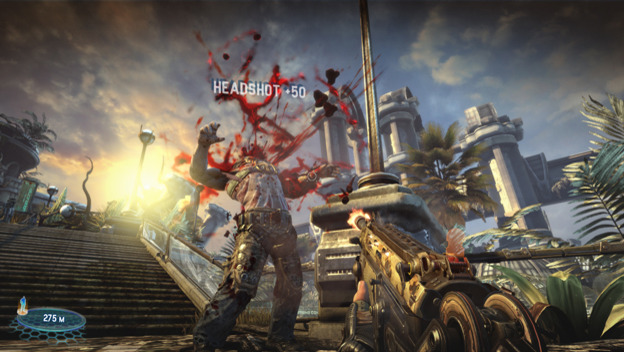It’s time to make all of the Call of Duty fans in the audience angry. The modern-day military shooter is killing creativity in the gaming industry. That’s not to say that Call of Duty is a bad game. A game can be good and still have negative consequences for the gaming industry. What the statement means is that the way these games are produced and the attitudes that both publishers and fans have toward them are stifling creative efforts in a number of ways. Let’s examine how.
First of all, Call of Duty is a massive success, and it deserves to be successful. It’s a good gaming franchise that consists of good games. Unfortunately, seeing this success leads other developers to try and copy it. That’s why we see so many military shooters on the market these days.
The very fact that “military shooter” is a genre now shows that Call of Duty’s influence has homogenized the market. There’s nothing about the mechanics of these shooters that makes them military. The COD system could be set in the Wild West, on a space ship, in a steampunk setting, or whatever. We don’t call the rest of our games Sci-Fi games or fantasy games. We call them shooters or RPGs or action games. We define games by their mechanics, not by their setting, except for the military shooter. The military shooter has grown large enough to set itself apart from every other shooter out there.
Why? Because every developer wants a piece of Call of Duty’s pie, so every developer tries, and largely fails, to create the next big military shooter success. Unfortunately, what these developers don’t realize is that the chance of them beating Call of Duty is really slim. It’s like the chance of a new MMO beating World of Warcraft. The brand recognition is too high, and COD addicts aren’t going to go out and purchase any old military shooter that hits the market, because they are too busy playing Call of Duty.
Of course, Activision isn’t without blame in this situation. The fact that they come out with a new Call of Duty every year is preventing Call of Duty fans from trying out new games. If the Call of Duty fanbase is ten-million-people large, then those ten million people will have to hold back sixty dollars every year for a Call of Duty purchase. Call of Duty games come out around the holiday spike in gaming releases, and if a COD fan only has enough money to purchase one game at that point in the year, it’s obviously going to be COD. They’ll ignore any of the other interesting games on the market just to get their COD fix.
Compare this to, say, a Mario fan or a Final Fantasy fan who will have 3-5 years before their gaming addiction of choice hits the shelves again. In those 3-5 years, they are buying other interesting games in other genres from other developers. This supports creativity and new ideas. But if shooters are the only things that are selling, then shooters will be the only things that are made.
The fact that shooters are easy to make isn’t helping things. There are so many established engines for shooters that even people with low amounts of programming skill can re-skin and mod their favorite engine to make a brand new game. Granted, this isn’t how good shooters are made, but it does make the genre appealing for tiny studios with small budgets. So now we have not only the AAA sector of the gaming industry trying to make shooters, but the indie sector as well.
The thing is, shooter developers aren’t doing anything wrong. Call of Duty, Battlefield, Gears of War, and all the other shooters out there exist to make money for their developers and publishers, so it’s only natural for them to be pushed into the faces of an addicted fanbase. Unfortunately, the shooter fanbase isn’t as big the rest of gaming’s fanbases put together. Fewer games in other genres are being made because publishers are supporting those genres less.
So, a very large chunk of the gaming fandom is being left disappointed because everyone is chasing Call of Duty money. The very fact that companies like Square Enix can call releases that sell 3.5 million copies a failure is proof of this. 3.5 million copies sold isn’t a failure. It’s good! It’s just not Call of Duty numbers.

The biggest problem is that we are also to blame. Sure, we like shooters, but we treat them as must have items. The next big competitive shooter from your franchise of choice isn’t a might-buy; it’s a must-have item, because everyone you know is going to migrate over, even if they don’t know whether or not the game is any good. So, if we keep throwing our money mindlessly at shooter creators, then no company will have any reason to try and make games in other genres. Not when the shooter cup of gold overfloweth.
This is important because no one is just a “shooter fan.” No one plays Call of Duty and only Call of Duty. Even the most hardcore Call of Duty fan has picked up Tetris, Street Fighter, or God of War at some point in his life. We all like multiple gaming genres. But as studio after studio closes down and the shooter market gets bigger and bigger, we are nearing a collapse. We may get to a point in the future when companies don’t want to risk money on games that don’t fit this action-shooter genre mold. Then, when we inevitably get sick of the genre, there won’t be any other types of developers left to pick up the pieces.
